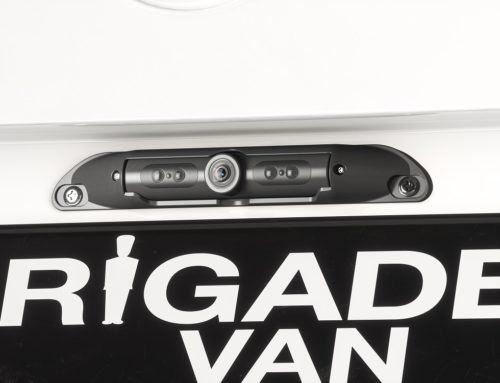More complex modifications – things like tail lifts and roof beacons – need to go through a simplified type approval process called Individual Vehicle Approval, or IVA.
Under IVA, the converter who carries out the modification has its fitting process approved.
Approval is carried out by the Vehicle Certification Agency (VCA), which issues a certificate to say that the mods are up to scratch. Without this certificate, you’re unlikely to be able to register the vehicle.
Obtaining this certificate is legally your responsibility, although in practice the converter or dealer often handles it on your behalf.
What if your van was registered before 29 April 2013? Good news. The new laws don’t affect you. But any new van you buy now will be.
But it’s causing delivery delays!
Over four months into the new regime, the system certainly hasn’t gone into meltdown but there are delays.
The SMMT told Business Vans: “It would have been a lot worse if we hadn’t been able to negotiate a relaxation in the regulations. Now, about two-thirds of vans benefit from the exemption and the Van Enhancement Scheme is going well.
“But there are delays under the IVA scheme because the VCA is currently unable to handle all the applications on time.”
In brief
- The main message is to plan for delivery delays as there are teething troubles with the new regime.
- The new rules only affect vehicles registered after 29 April 2013.
- Simple mods like ply lining, roof access steps, and racking are exempt.
- Tail lifts and roof beacons have a simplified approval process called Individual Vehicle Approval – IVA.
- It’s your responsibility to get a Vehicle Certification Agency certificate for your converted van – but don’t worry, the conversion firm should do it for you.
- Manufacturer conversions should be covered by the regular warranty so delivery should be unaffected.
The SMMT is talking with the authorities to ease the bottlenecks and is confident that action will be taken to reduce the delays but is unable to say when that might happen.
There are also concerns that the full impact of the changes has yet to bite.
One industry source told Business Vans that converters registered lots of vans before the 29 April deadline. These vans avoid the new type approval laws.
Converters have been working their way through these pre-registered vans but the supply is now dwindling. Result: they are now starting to put more new vans into an already over-stretched IVA testing system.
Malcolm Tagg, director general of the Vehicle Builders and Repairers Association (VBRA), told Business Vans:
“A fair number of body builders are doing IVA but it is taking a long time for them to get a test date. Taking on short order work is now almost impossible.”
Jay Parmar, BVRLA legal and policy director, concurs.
He told Business Vans: “Our members are seeing a lack of resources to deal with IVA. There are long lead-in times whichever site you use for testing. The VCA is also not geared up for the volume of queries about whether a conversion falls under the Van Enhancement Scheme or IVA.
“We’d also like to see an online database of VCA-accredited converters but they don’t have the resources for that, either.”
So the expert’s advice to a small business planning to get a new converted van is simple and consistent:
Tagg from the VBRA says, “Talk to the converter about exactly what you need and think a few months in advance.”
Parmar from BVRLA: “If you lease, our members will help but talk to them as early as you can before you need the vehicle.”
SMMT: “While the delays persist, you should plan ahead as much as possible.” So if that’s you, you know what to do.







Leave A Comment